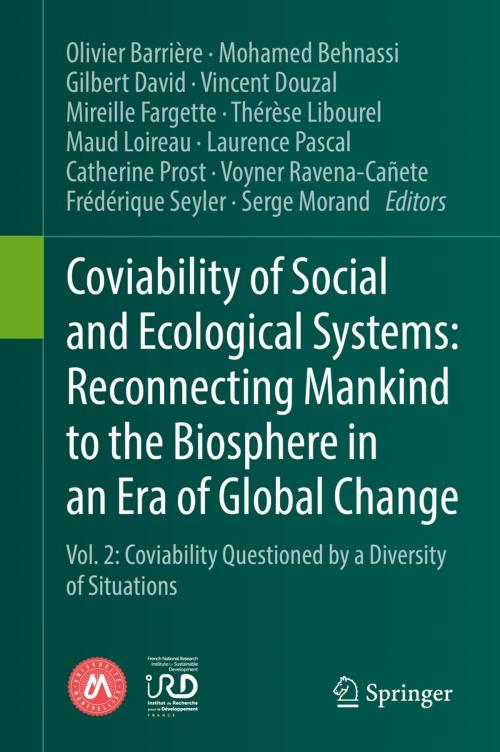Coviability of Social and Ecological Systems: Reconnecting Mankind to the Biosphere in an Era of Global Change
Vol. 2: Coviability Questioned by a Diversity of Situations
Nonfiction, Science & Nature, Science, Biological Sciences, Ecology, Environmental Science, Nature| Author: | ISBN: | 9783319781112 | |
| Publisher: | Springer International Publishing | Publication: | March 12, 2019 |
| Imprint: | Springer | Language: | English |
| Author: | |
| ISBN: | 9783319781112 |
| Publisher: | Springer International Publishing |
| Publication: | March 12, 2019 |
| Imprint: | Springer |
| Language: | English |
This second volume is the work of more than 55 authors from 15 different disciplines and includes complex systems science which studies the viability of components, and also the study of empirical situations. As readers will discover, the coviability of social and ecological systems is based on the contradiction between humanity, which adopts finalized objectives, and the biosphere, which refers to a ecological functions. We see how concrete situations shed light on the coviability’s determinants, and in this book the very nature of the coviability, presented as a concept-paradigm, is defined in a transversal and ontological ways.
By adopting a systemic approach, without advocating any economic dogma (such as development) or dichotomizing between humans and nature, while emphasizing what is relevant to humans and what is not, this work neutrally contextualizes man’s place in the biosphere. It offers a new mode of thinking and positioning of the ecological imperative, and will appeal to all those working with social and ecological systems.
This second volume is the work of more than 55 authors from 15 different disciplines and includes complex systems science which studies the viability of components, and also the study of empirical situations. As readers will discover, the coviability of social and ecological systems is based on the contradiction between humanity, which adopts finalized objectives, and the biosphere, which refers to a ecological functions. We see how concrete situations shed light on the coviability’s determinants, and in this book the very nature of the coviability, presented as a concept-paradigm, is defined in a transversal and ontological ways.
By adopting a systemic approach, without advocating any economic dogma (such as development) or dichotomizing between humans and nature, while emphasizing what is relevant to humans and what is not, this work neutrally contextualizes man’s place in the biosphere. It offers a new mode of thinking and positioning of the ecological imperative, and will appeal to all those working with social and ecological systems.















